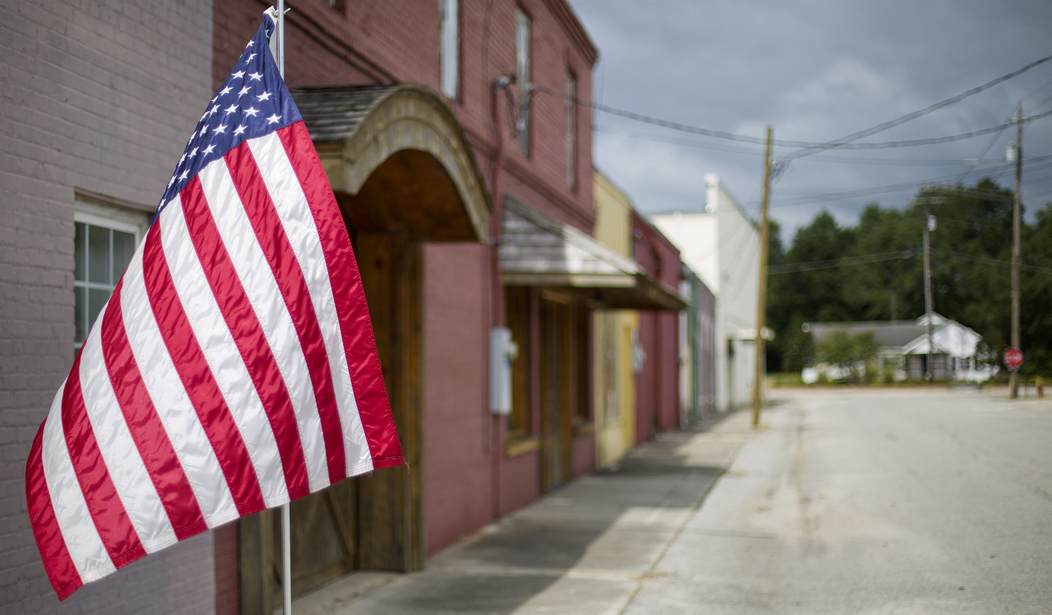During World War II, Americans were faced with the alarming prospect of our enemies—the world’s most reprehensible regimes—speeding towards the development of an atomic bomb. In response, we assembled a galaxy of brilliant scientific and military minds, placing our own horse in the rapidly unfolding arms race. The Manhattan Project, as it became known, successfully developed the atomic bomb, which ended the war against Japan.
In no short order, the coronavirus crisis has been called our generation’s Pearl Harbor, and in some ways, this may very well be true. But one thing is stunningly clear: we are in dire need of an economic Manhattan Project before it is too late for the most vulnerable parts of our economy to recover.
In this time of immense crisis, we have seen 700,000 jobs lost in a single month alone and are fast approaching a death toll of over 100,000 in the U.S.. The economic carnage will be catastrophic, with some estimates looking at 27.9 million jobs in the United States lost and the potential for a 16% unemployment rate.
I have spoken to many small business owners in small towns within my district, and entrepreneurs who currently drive the American economy are looking at financial challenges that very well may exceed that which we faced in WWII. This “black swan” event will be challenging across the country, but it will be particularly difficult for rural America’s “Main Streets” in places like Texas and Appalachia, where local economies are defined by their local small businesses.
Prior to the coronavirus, much of rural America remained effectively a venture capital desert. As the Trump economy roared along prior to the pandemic, 75 percent of venture capital still only went to Boston, Los Angeles, New York, and San Francisco. According to the Kauffman Foundation, not a single venture fund was trying to invest in only rural communities. If this ratio occurs in the best of times, Main Street entrepreneurs will be even more ignored in this unprecedented worst of times.
Recommended
We need leadership on Capitol Hill to provide the economic incentive for investing outside the big four hotspots. Like our Manhattan Project forbearers, we are calling for the crafting of a unique statutory incentive for a contingency of sharp venture capital and entrepreneurial minds to join a Main Street Project (MSP) Fund. The Fund would include an expedited approval process that would be statutorily required to be shorter than the approval time for a Small Business Administration loan.
The mechanics would be fairly straightforward. Once approved for the MSP Fund, specific incentives would be offered both to venture capitalists and Main Street businesses in order to encourage participation on both sides. For any venture capital or entrepreneur who joins and invests in a Main Street Certified project or business, his or her investment would be excluded from capital gains, any loss would be tax deductible, and regulatory requirements would be simplified in exchange for joining in and reporting on these investments. Meanwhile, for the Main Street business owner, he or she could expect quick access to capital, with the significant incentive of having a reduced corporate tax rate of just 10% for five years following acceptance into the program.
The next eight to 10 weeks will be a critical moment for America’s economy, and in particular, for the future of Main Street. Even in the best of times, Main Street lagged behind due to various handicaps, including a lack of access to venture capital, empty storefronts, brain drain, and devastation from the opioid crisis. But during a national pandemic with economically crippling effects, the gap will only be further exacerbated. Leaders on Capitol Hill must take concrete steps to provide economic hope to a struggling Main Street. It starts by creating a deregulated environment so that entrepreneurial minds are encouraged to pour much-needed lifeblood into Main Street. We need a VC Manhattan Project, and we need it now. The future of Main Street America is at stake.
Editor's note: This op-ed was written prior to Fuller going on active duty orders as a member of the National Guard.
























Join the conversation as a VIP Member